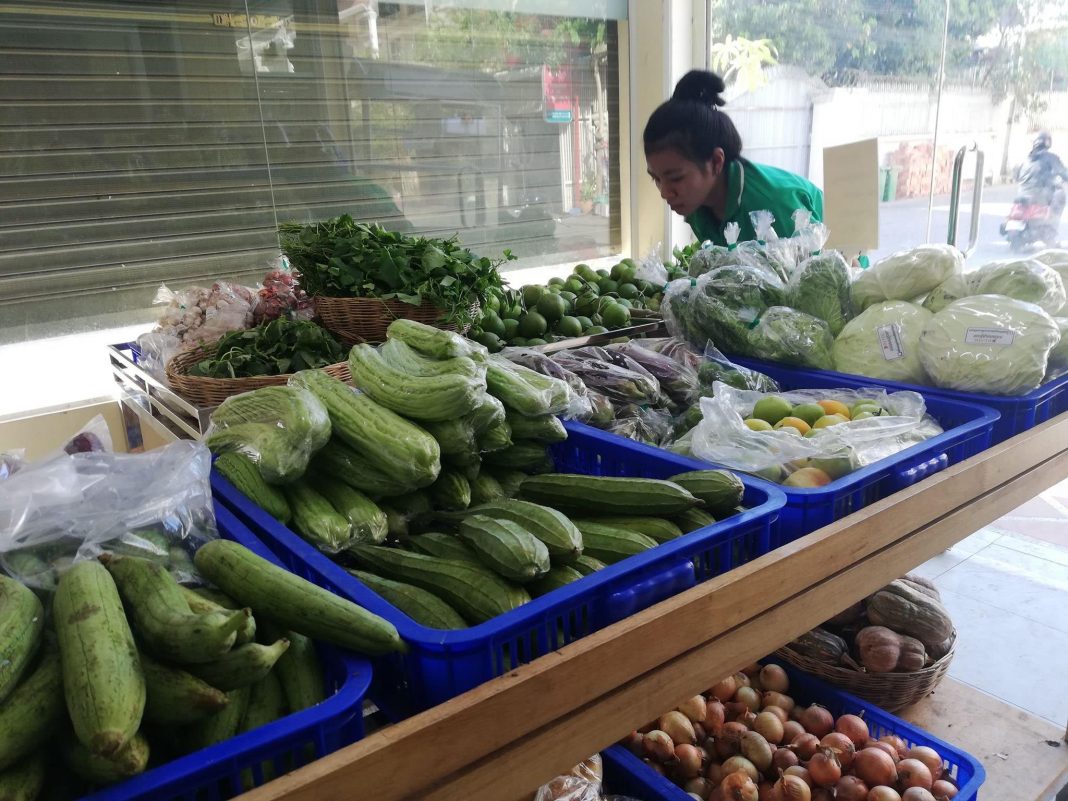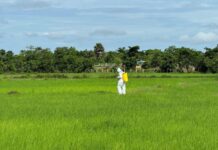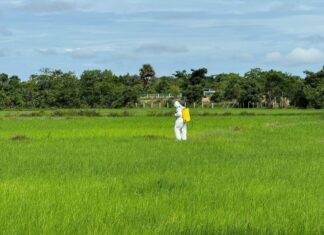Sellers of organic vegetables in Cambodia say the market has expanded rapidly in recent years, with sales at some shops tripling in five years and more customers looking to support local produce.
At Phnom Penh’s five Natural Agri-Product stores, sales had now increased to about 3 tons a month at each branch, said Sok Ra, the store manager in Toul Kork district’s Boeung Kak commune.
This was an increase from about 1 ton a month at each shop five years ago, Ra said.
The organic products at the stores were grown locally, which he said was one of the major benefits for customers.
“Cambodians should focus on, support and use our own country’s products that are made by our own hands, that will never harm our health and that will decrease the import of overseas products. Moreover, we also can help improve the lives of Khmer people,” Ra said.
The stores — operated in partnership with NGO the Cambodian Center for Study and Development in Agriculture (Cedac) — sourced their vegetables mostly from the provinces of Takeo, Kampong Chhnang, Kampong Speu and Kampot, he said.
Horm Kroesna, manager of Green O Farm in Chamkar Mon district’s Boeng Keng Kang I commune, said the shop had been operating for 10 years and had been expanding the number of its suppliers from whom it bought organic produce.
“Every day we can sell between 500 to 700kg of different types of vegetables and produce,” he said. “We’ve been cooperating with other farming associations, and have farmers from around 100 families supplying us.”
Five years ago, the shop only had about 30 to 40 families supplying it, Kroesna said. Most of the suppliers were from the provinces of Kandal and Kampong Speu, he added.
A researcher of organic agriculture at Mondulkiri province’s SMR Organic Farm, Chea Thakhi Hiro, said the recognition and understanding of safe and non-toxic vegetables had grown significantly in the past five years. More companies were exporting organic produce, especially rice — though organic vegetables were relatively less available, he said.
However, Thakhi Hiro said farmers and consumers still needed to better understand the differences between farming methods, which varied from conventional farming using chemicals to organic farming and hydroponic techniques. Chemicals can range from hormone-based drugs, which have a worse impact on health and soil quality, to what he called “medicinal planting.”
Many of the vegetables that farmers and consumers perceive as being “natural” are not in fact organic, he said.
Organic farming should use no chemicals, whether for fertilizers or pesticides. It is more difficult and time-consuming compared to other farming systems, but safer for both growers and consumers, Thakhi Hiro said.
In April, the Agriculture Ministry announced a law on organic agriculture to uphold standards and promote the confidence of producers and consumers, according to the Phnom Penh Post.
The law aims to increase the adoption of organic practices among farmers and boost exports, according to the ministry.
Customers buying organic vegetables in Phnom Penh said they mostly bought the higher-priced produce out of concern for their health.
Mok Chheng, shopping in Russei Keo district, said she prefers organic vegetables and fruits over produce grown with chemicals that could affect her health. But the selling price was a bit expensive and organic produce was difficult to find in markets, she said.
Neang Sok Kheang, in Sen Sok district, said that even though the prices were higher than other vegetables, she still buys organic because her personal and family health are important to her.
“We should take good care of [our health],” Sok Kheang said. Buying organic was also a way to support farmers who had turned to organic farming methods, she said.












